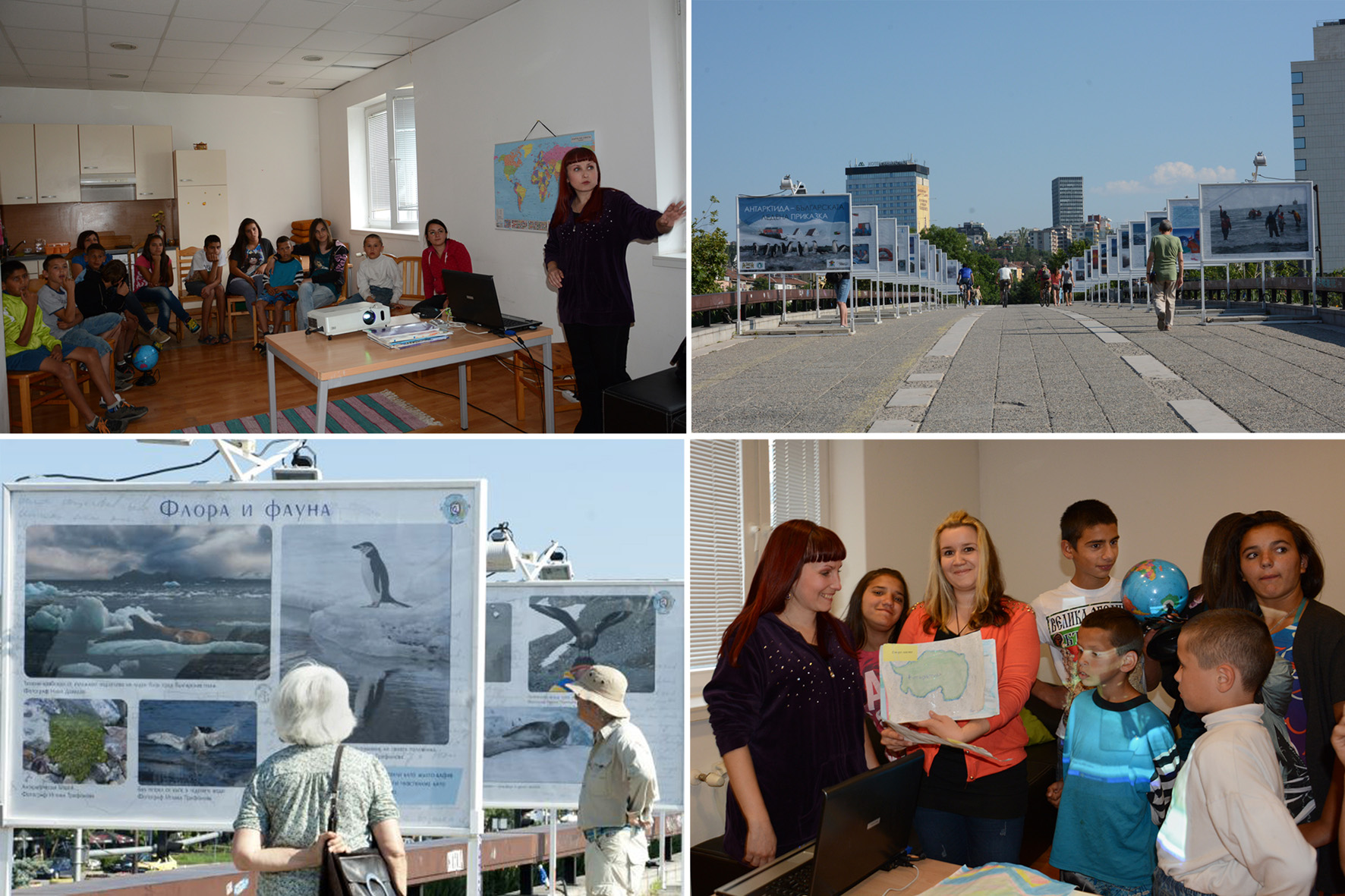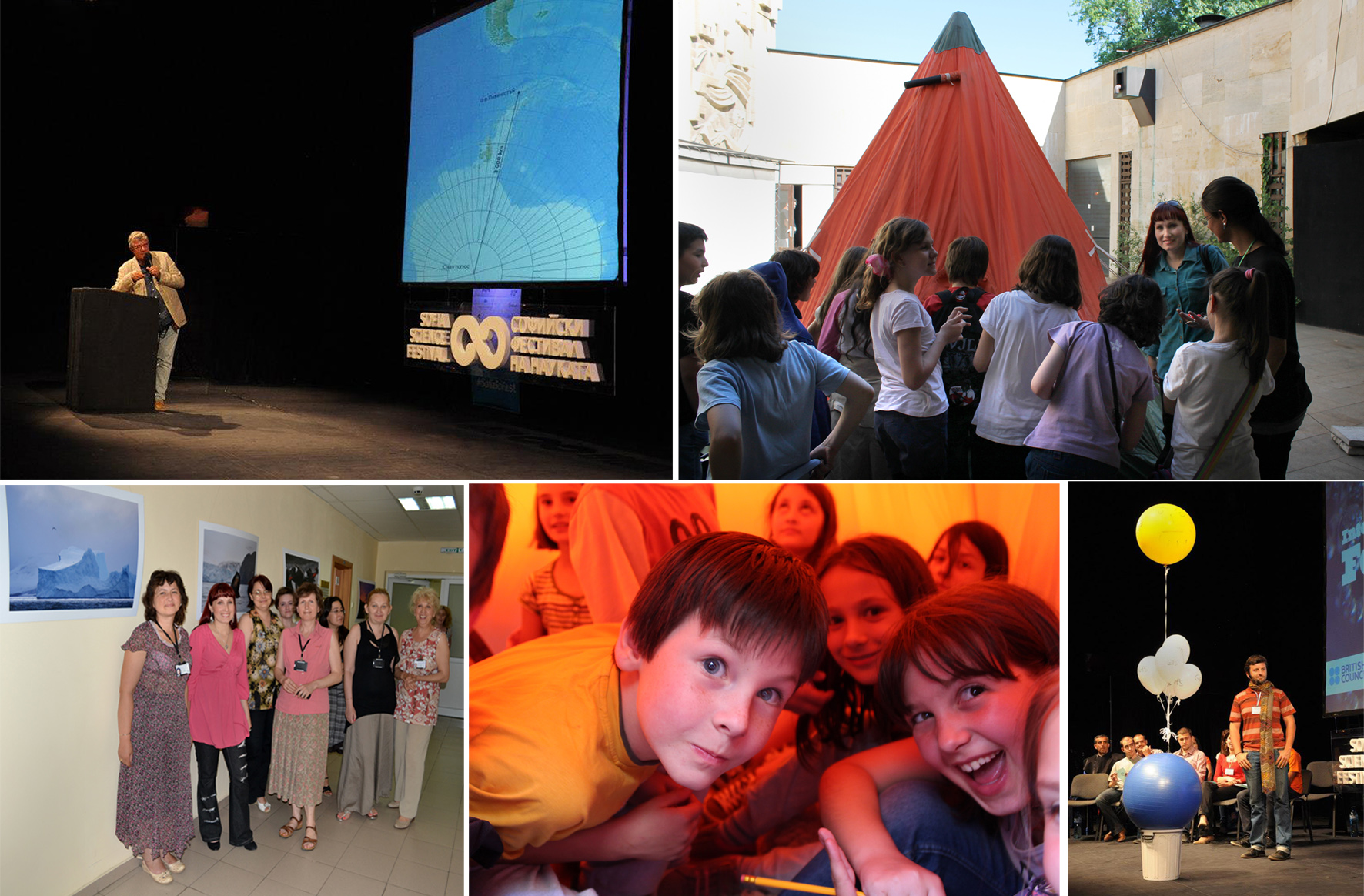 APECS-Bulgaria has passed successfully its first year with a lot of enthusiasm, plenty of outreach events and promising partnerships. Bulgarian National Committee started its work in the summer 2012 and in the next half a year prepared more than 20 events for the general audience and for the schools.
APECS-Bulgaria has passed successfully its first year with a lot of enthusiasm, plenty of outreach events and promising partnerships. Bulgarian National Committee started its work in the summer 2012 and in the next half a year prepared more than 20 events for the general audience and for the schools.
The Spring International Polar week in Bulgaria was delayed with some weeks because of the British Council's Science Festival in Sofia. There Antarctic and the Polar education were a key attraction and several members of APECS and Bulgarian Antarctic Institute attended science outreach events. During the Festival in May 2013 students from many schools could see from inside the tent of the 1st Bulgarian expedition (1987-1988) and feel like real Polar explorers. There were lectures, a digital photo exhibition and we are proud that Asparuh Kamburov - a Polar early career scientist was one of the finalists in the Fame Lab competition! A very good collaboration between APECS-Bulgaria, Bulgarian Antarctic Institute and British Council-Bulgaria!
 During the spring 2013 the coordinator of APECS Bulgaria attended the International Workshop "Education Meet Science: Bringing Polar Research into classrooms" in Coimbra, Portugal and the Science Fair, organized by APECS Belgium as a side event to the Antarctic Treaty Consultative Meeting (ATCM) in Brussels, sharing experiences and exchanging ideas and contacts.
During the spring 2013 the coordinator of APECS Bulgaria attended the International Workshop "Education Meet Science: Bringing Polar Research into classrooms" in Coimbra, Portugal and the Science Fair, organized by APECS Belgium as a side event to the Antarctic Treaty Consultative Meeting (ATCM) in Brussels, sharing experiences and exchanging ideas and contacts.
Summer 2013 activities of APECS Bulgaria include firstly talks and drawing contest for orphans and street children from the Socialand Youthcenter of Concordia Bulgaria Foundation. A large educational Antarctic photo exhibition dedicated to the 25th anniversary of the Bulgarian Antarctic expeditions was held at the end of July with a great success. It was created in cooperation with the Bulgarian Antarctic Institute and was exposed in the most popular place in the heart of Sofia town – on the "Lovers Bridge" close to the National Palace of Culture.
All these public engagement activities received wide media coverage and excellent feedback from the different publics. We strongly believe that science communication is very important for the successof Antarctic educational activities and we try to expand continuously our media relations.


